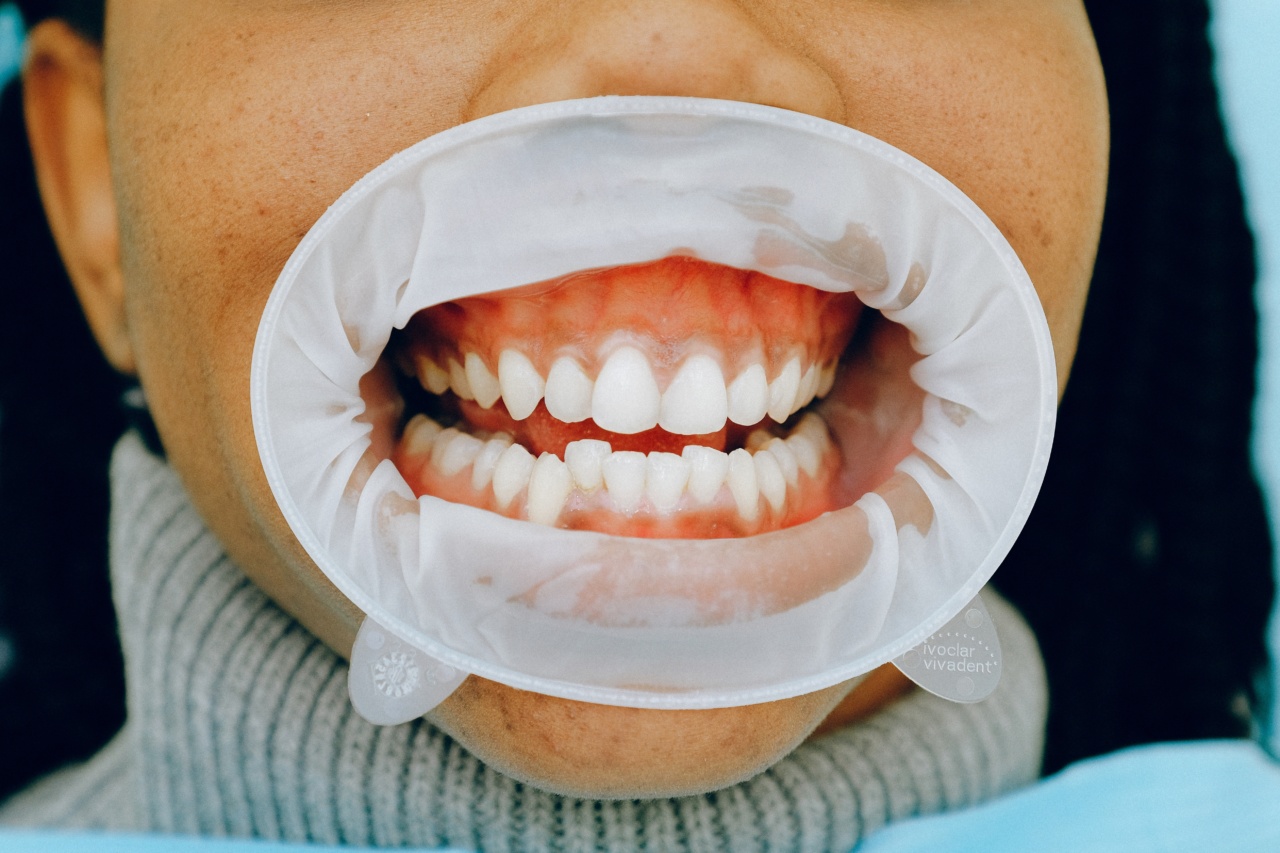Gum bleeding is a common dental problem that is caused by a variety of factors, such as gum disease, hormonal changes, certain medications, and improper oral hygiene.
Regardless of the cause of your gum bleeding, it is crucial to take action to prevent further complications and improve your oral health. Here are some tips to help you stop gum bleeding:.
1. Brush and floss regularly
One of the most effective ways to prevent gum bleeding is to maintain proper oral hygiene. Brush your teeth at least twice a day, using a soft-bristled toothbrush and fluoride toothpaste. Make sure to brush all sides of your teeth and your tongue.
Also, floss your teeth daily to remove plaque and food particles that can cause gum inflammation. Use a gentle, back-and-forth motion to clean between your teeth and under your gum line.
2. Use a therapeutic mouthwash
Antiseptic mouthwash can help kill bacteria that cause gum bleeding and prevent gum disease. Look for a therapeutic mouthwash that contains ingredients like chlorhexidine, hydrogen peroxide, or essential oils.
Swish the mouthwash around in your mouth for at least 30 seconds before spitting it out. Don’t rinse your mouth with water immediately after using mouthwash to give it time to work.
3. Apply pressure to the bleeding gum
If your gum is bleeding, apply firm pressure to the affected area with a clean, damp cloth or gauze for a few minutes. This can help stop the bleeding and promote healing.
Avoid using tissues, as the small fibers can get stuck in your teeth and irritate your gums.
4. Rinse your mouth with salt water
Salt water is a natural antiseptic that can help reduce swelling and inflammation in your gums. Dissolve 1 teaspoon of salt in a glass of warm water and rinse your mouth with it for about 30 seconds. Spit it out and repeat several times a day as needed.
Avoid using hot water, as this can cause further irritation.
5. Avoid tobacco and alcohol
Tobacco and alcohol can irritate your gums and worsen gum bleeding. Smoking also increases your risk of gum disease and oral cancer. If you smoke or drink alcohol, consider quitting or reducing your intake for the sake of your oral and overall health.
6. Eat a healthy diet
A balanced diet that is rich in vitamins and minerals can help strengthen your immune system and prevent gum disease. Eat plenty of fresh fruits and vegetables, lean protein, and whole grains.
Avoid sugary and processed foods that can increase your risk of tooth decay and gum disease.
7. See your dentist regularly
Regular dental check-ups and cleanings can help detect and treat gum disease early, before it causes serious damage to your teeth and gums.
Your dentist can also provide professional cleaning and scaling to remove plaque and tartar that can cause gum bleeding. Follow your dentist’s advice on how often to schedule appointments based on your individual oral health needs.
8. Address hormonal changes
Some women experience gum bleeding during pregnancy or menopause due to hormonal changes. If you notice increased gum bleeding during these times, talk to your dentist or doctor about how to address it.
This may include more frequent dental visits or hormonal therapy.
9. Manage medication side effects
Certain medications, such as blood thinners or antiplatelet drugs, can increase your risk of gum bleeding.
If you are taking these medications, talk to your doctor and dentist about strategies to manage gum bleeding, such as adjusting your dosage or switching to a different medication.
10. Practice stress management
Stress can weaken your immune system and make you more vulnerable to gum disease and other health problems. Find healthy ways to manage stress, such as meditation, yoga, exercise, or talking to a therapist.
This can improve your overall health and reduce your risk of gum bleeding.






























